Parcours & Panache: Fiona Kolbinger on Winning TCRNo7
Words: Pete Harrington
Photos: Thomas Schlorke
This year’s edition of the Transcontinental Race was won by a little known German by the name of Fiona Kolbinger riding her first-ever unsupported ultra-race. TCRNo7, if you have to ask, was not a women-only race, nor did it make concessions to gender. Armed only with a big smile, preparedness and natural panache, a 24-year-old medical student won one of the hardest endurance bike races in the world against a field that included over 200 men. And she wasn’t anywhere near her limit.
When Fiona met fellow endurance rider, Björn Lenhard, he freaked out. “He couldn’t believe there was someone living in the same place doing the same crazy things,” she laughs, recalling their first meeting in Dresden. Fiona had moved to the city after finishing her medical studies, and with a few months to spare before starting a surgeon’s course, had her eye on riding TCR and Paris-Brest-Paris. A chance conversation on a train while journeying to a PBP qualifying event led to the discovery that she shared her new home with Björn Lenhard. “Up to that point I only knew his name,” she says of the former TransAtlantic Way and Paris-Brest-Paris winner. “But the first time I saw him I went straight up to him and said, ‘Hi Björn, I’m Fiona, and I’m also doing TCR and PBP this year!’. He was shocked! After that, we became close friends.”
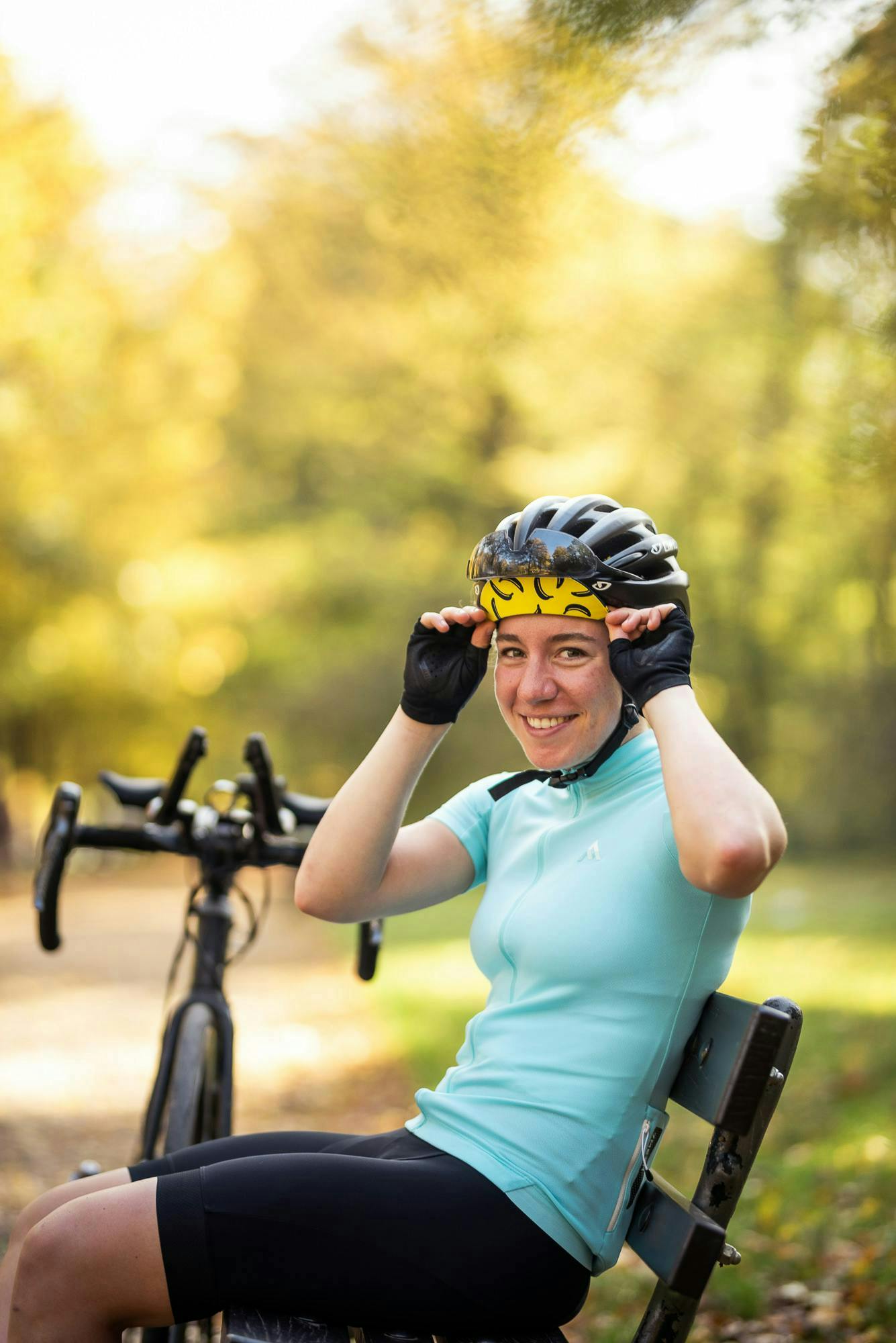
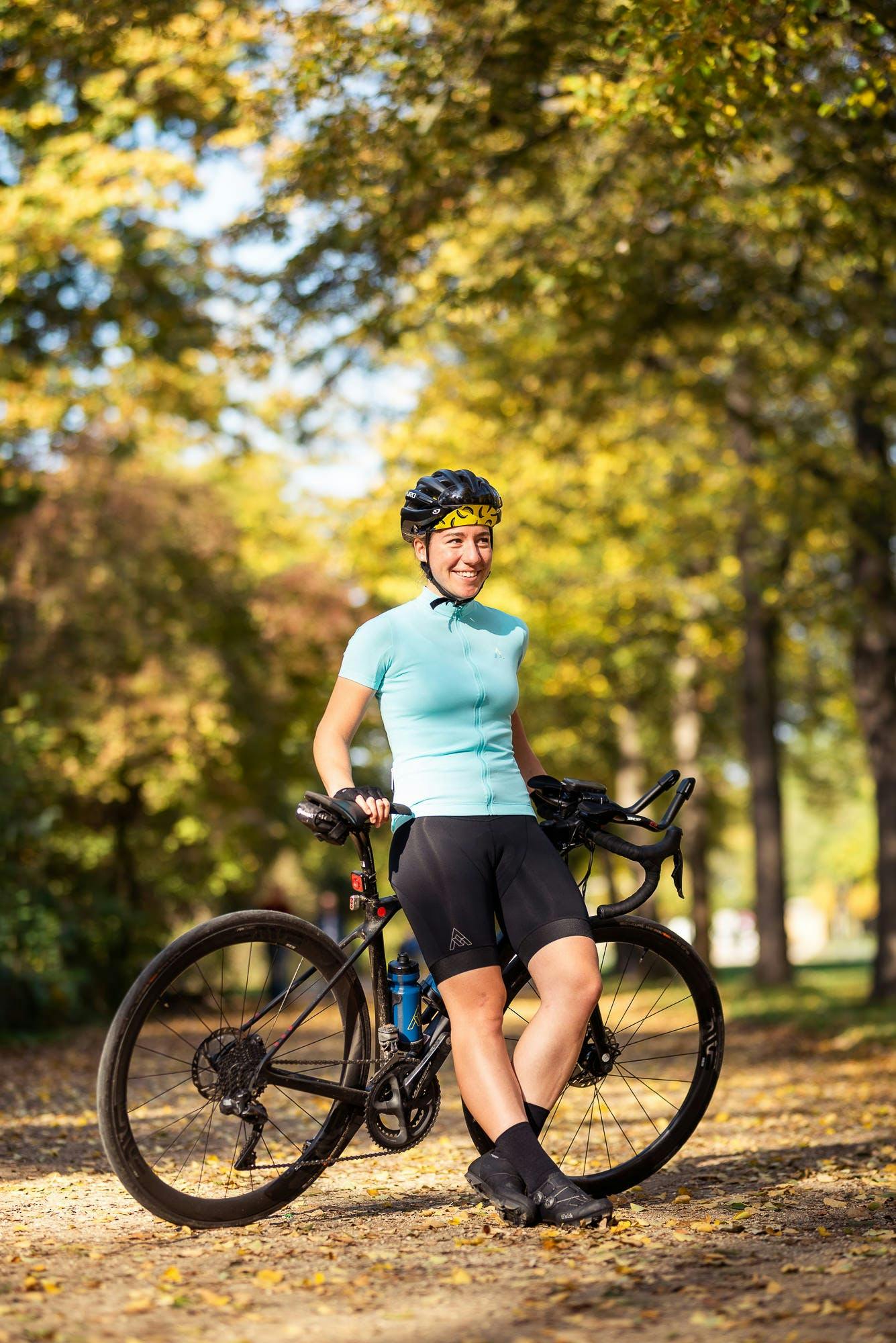
The cycling world was incredulous when Fiona won. Blogs and the BBC alike parroted the same lines. The bike industry worried someone had slipped the sponsor net. Things were offered – and declined. “I’m not much into Instagram or social media,” Fiona says with a sigh. “My world is better when I’m present.” But still, the noise. “I had to make a Facebook fan page, just to separate myself,” she admits. To understand her unwillingness to engage is to recognise that Fiona rides for fun, not the future. And the fact that even before her win was secure, she had started to receive marriage proposals via Strava – unwanted attentions that did not quickly disappear. “My freedom is the most important thing,” she says. “So I decided that the joy I find from cycling must be kept clear from contracts, brands or the media.”
But for the perfect pair of bib shorts, she was willing to make one exception.
If Fiona had one fear before the race, it was saddle sores. Her first long-distance ride proved a painful lesson: don’t wear anything under your cycling shorts. And don’t shave anything, either. “It just took a lot of time for me to learn how all this works,” she laughs. “But it’s a big problem.” After learning the hard way about what not to wear, Fiona approached the problem of comfort as any scientist might: a comparative analysis. “I bought several pairs of shorts – one of which was from 7mesh,” she recalls. “The bib short from 7mesh was the only one that did not have seams around the pad. That changed everything. My second ride was a 400 kilometre Audax, and I didn’t have any problems.”
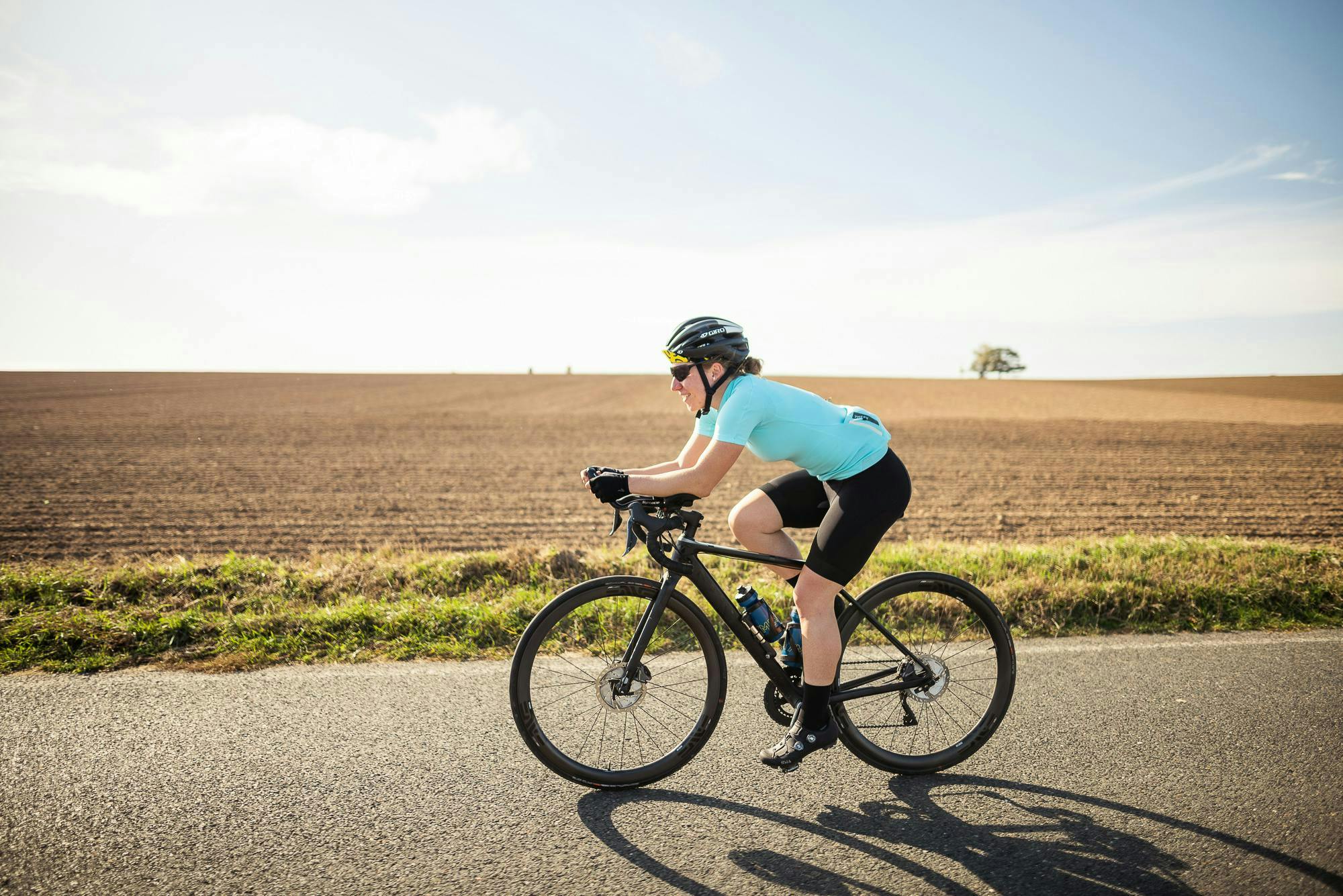
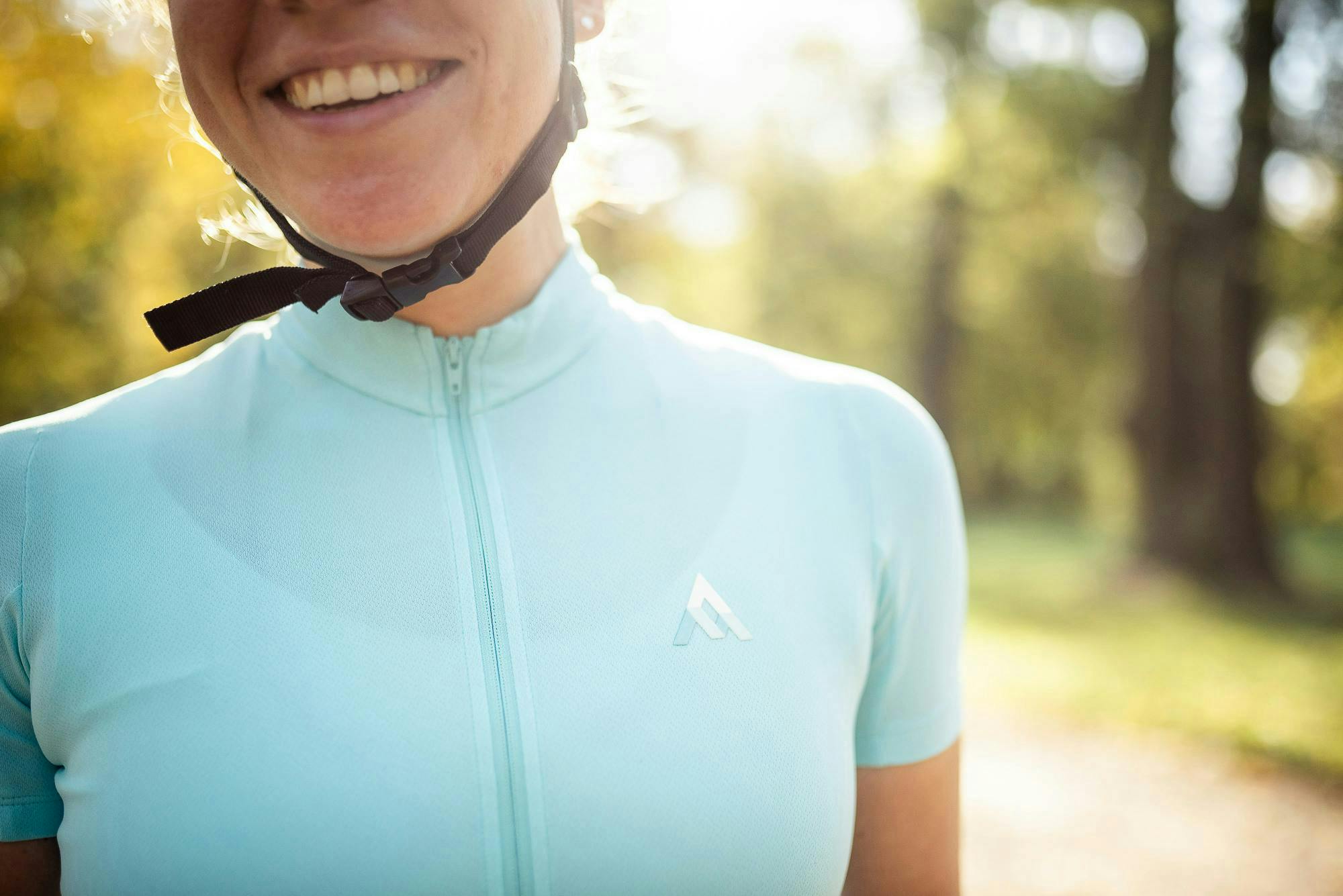
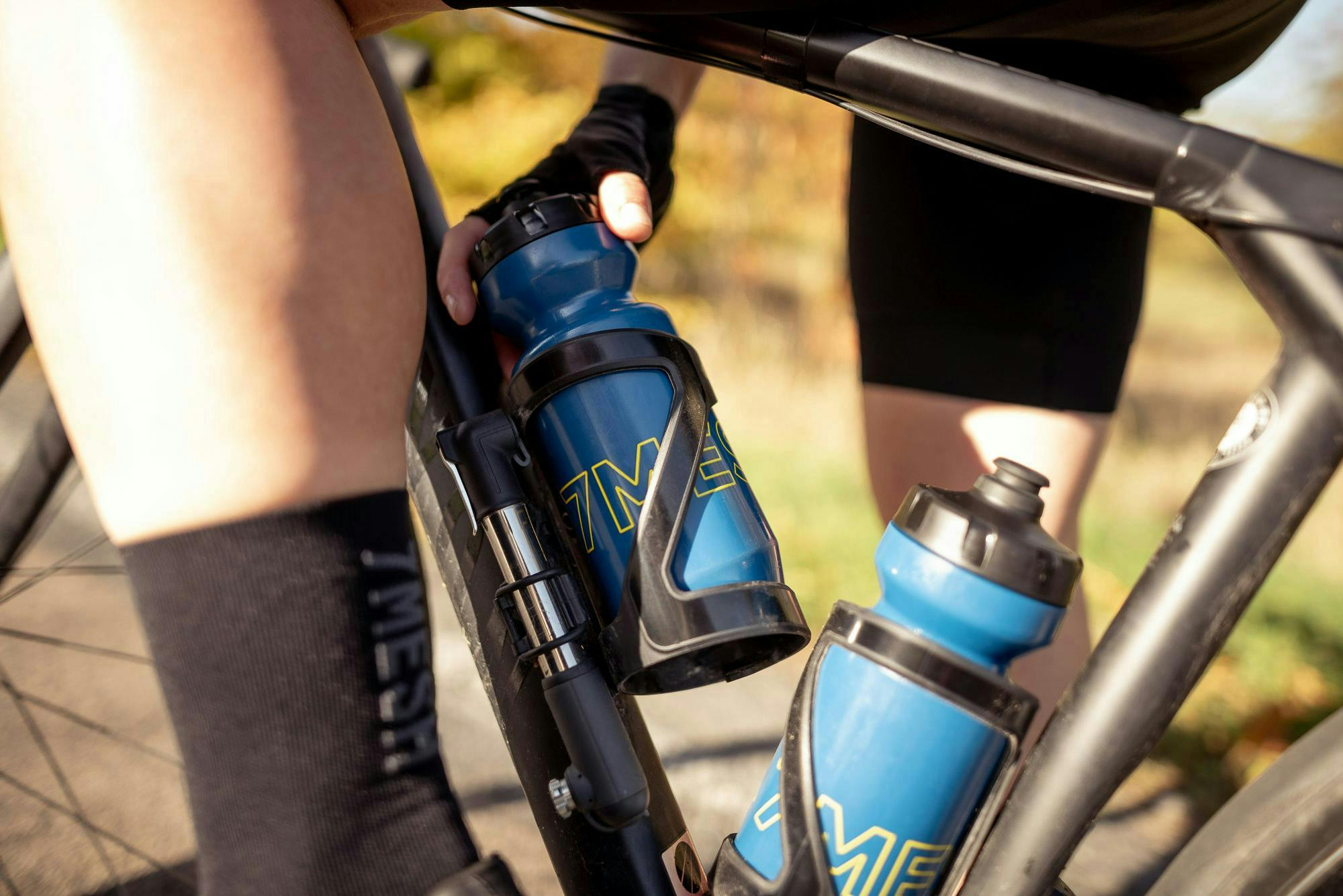
Since then, Fiona and 7mesh have signed a deal to support each other in future events. So far, her only one. “The contract I have with 7mesh is perfect for me,” she notes. “It doesn’t force me to post anything on social media. It doesn’t require me to participate in certain events, which is something other companies have mentioned in their contracts. It feels totally natural.”
Dig a little deeper when talking to Fiona, and her win doesn’t seem so much a surprise as an inevitability. She is by her own admission, precise. “I’ve always liked things to be in a certain order,” she explains. “I was obsessed with getting everything right for TCR, to be able to fix everything on my own.” Although she is quick to credit Björn for hard-won advice and tips, one of which defied logic. “He was the person who told me you don’t need to take a spare set of clothing,” she laughs. “I mean, you wouldn’t leave extra clothes at home for no reason, so you need someone to tell you, ‘You don’t need it,’ because it seems counterintuitive to only go with what you are wearing, and not take anything else. But it worked!”
Months of preparation, testing and tweaking later, it was time to lineup at the start in Burgas, Bulgaria for the 4000km race to Brest in northwest France. “From the first kilometre, I felt really confident about my set-up. I knew I had some legs, that I had done some pretty big rides beforehand, so I had no doubts about finishing,” she recalls. “But I think what allowed me to enjoy the race and relax was how much I enjoy the act of cycling. I was so constant in my preparation that I could really switch off all unnecessary thoughts, because the moment I was at the start line, I couldn’t change anything, right?”
The race though wasn’t the only new thing Fiona had to contend with. “I hadn’t visited 90% of the countries on my route. Seeing them for the first time was super exciting.” And as she explains, the bike carried her at the perfect speed to appreciate the new world around her. “The landscape around you changes, but at a speed that you can control, that you can follow in your mind. It’s not like flying where you wake up nine hours later, and it’s completely different, or in a car that’s going too fast for you to realise what’s going on.”
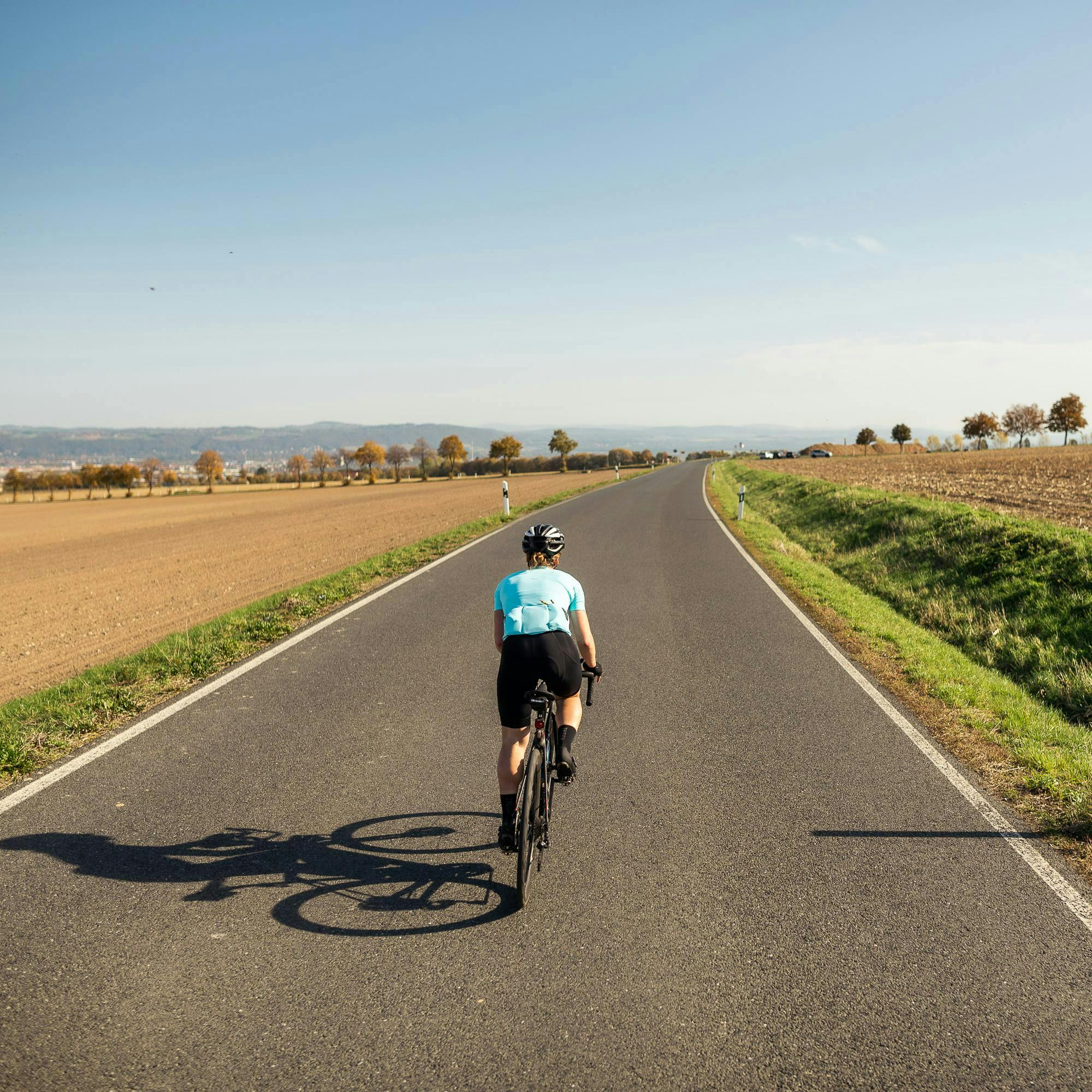
Fiona broke the line in Brest at ten days, 2 hours and 48 minutes. En route, between slumping in doorways to sleep and finding enough food to eat, she even had the time to play a little light piano at Control Point 4’s Hotel de Milan. For this soon to be surgeon, that came as some relief. “I think a lot of photos from the race showed me on my aero bars – even uphill,” she says. “Before the race, I had told myself that the only thing that would cause me to quit would be numb hands. Consequently, I took great care to use my aero bars at all times. And it worked!”
